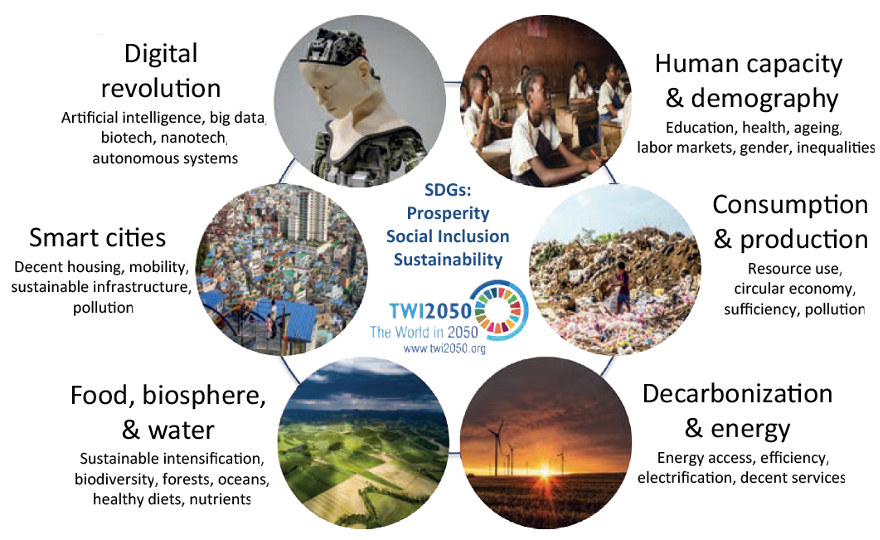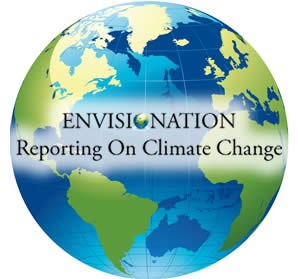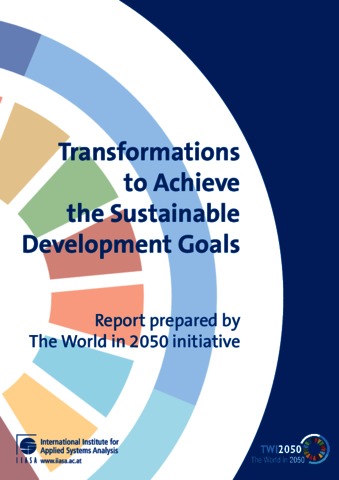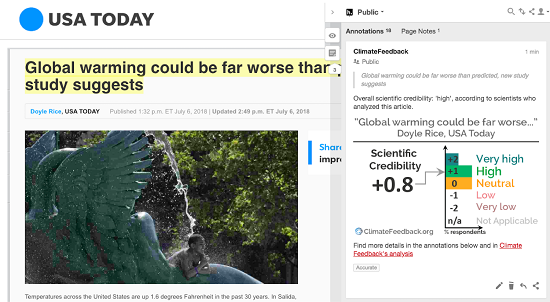2018 SkS Weekly Climate Change & Global Warming Digest #28
Posted on 15 July 2018 by John Hartz
SkS Highlights... El Niño/La Niña Update... Toon of the Week... Quote of the Week... Graphic of the Week... SkS Spotlights... Video of the Week... Reports of Note... Coming Soon on SkS... Climate Feedback Reviews... SkS Week in Review... Poster of the Week...
SkS Highlights
The successful #MetsUnite Climate Change initiative organised by Jeff Berardelli raised $1,000 for charity! The funds were raised through royalties from the items displayed on TV and on social media around June 21st.
Now it’s time to decide who gets the money and Skeptical Science is one of four not for profit climate change awareness and education entities in the running.
If you'd like to help us get $1,000, please visit http://metsunite.com/vote-here/ and vote for Skeptical Science before voting ends on July 20!
El Niño/La Niña Update...
The chance that El Niño conditions will be in place across the tropical Pacific by the fall is about 65%, and close to 70% by the winter, continuing the El Niño Watch from last month. Here in the U.S., with sultry weather from coast to coast, it’s hard to think about winter right now…but that’s our job! After a trip through the tropical Pacific, we’ll get into what El Niño could mean for global weather and climate this winter.
July 2018 ENSO Update: Dog days by Emily Becker, ENSO Blog, NOAA's Climate.gov, July 12, 2018
Toon of the Week...

Quote of the Week...
Heatwave sees record high temperatures around world this week

The dried up River Kennet in Wiltshire following the prolonged heatwave in England. Photograph: Matt Cardy/Getty Images
The World Meteorological Organization (WMO) said the rising temperatures were at odds with a global cyclical climate phenomena known as La Niña, which is usually associated with cooling.
“The first six months of the year have made it the hottest La Niña year to date on record,” said Clare Nullis of the WMO.
Heatwave sees record high temperatures around world this week by Jonathan Watts, Environment, Guardian, July 13, 2018
Graphic of the Week...

Sustainable Development Goals. Report prepared by The World in 2050 initiative. International Institute for Applied Systems Analysis (IIASA). Laxenburg, Austria, 2018
SkS Spotlights...

Nick Breeze and Bru Pearce set up the Envisionation blog as a place to present thoughts, ideas, interviews and responses to what is going on in the human world. The context for much of the content is on the developing crisis of climate change and our collective and individual response to it.
Video of the Week...
A team of NYU scientists has captured on video a four-mile iceberg breaking away from a glacier in eastern Greenland. This phenomenon, known as "calving", is a force behind the rise of global sea water levels.
“Global sea-level rise is both undeniable and consequential,” observes David Holland, a professor at NYU’s Courant Institute of Mathematics and NYU Abu Dhabi, who led the research team. “By capturing how it unfolds, we can see, first-hand, its breath-taking significance.”
Holland’s research team has studied the waters off the coast of Greenland for more than a decade by measuring subtle changes in water temperature and wave formation.
Video Credit: Denise Holland, Logistics Coordinator/NYU’s Environmental Fluid Dynamics Laboratory (Video shot June 22, 2018- Real time length: 30 minutes)
NYU Scientists Capture 4-mile Iceberg Breaking in Greenland, New York University, July 6, 2018
Reports of Note...

Sustainable Development Goals. Report prepared by The World in 2050 initiative. International Institute for Applied Systems Analysis (IIASA). Laxenburg, Austria, 2018
Coming Soon on SkS...
- Comprehensive study: carbon taxes will benefit the economy (Dana)
- Water glasses and greenhouse gases (Evan)
- How Wind Turbines Bolster Rural America (greenman)
- Guest Post (John Abraham)
- Ocean Temperature - Part 2 (Irek Zawadzki)
- 2018 SkS Weekly Climate Change & Global Warming News Roundup #29 (John Hartz)
- 2018 SkS Weekly Climate Change & Global Warming Digest #29 (John Hartz)
Climate Feedback Reviews...
USA Today story accurate but lacks clarity regarding timescales over which warming could be underestimated

Climate Feedback asked a team of scientists to analyze the article, Global warming could be far worse than predicted, new study suggests by Alister Doyle, USA Today, July 6, 2018
Five scientists analyzed the article and estimate its overall scientific credibility to be 'high'.,/p>
A majority of reviewers tagged the article as: Accurate.
Review Summary
This story in USA Today covers a new study that compared past climate changes to model simulations, concluding that models can underestimate future warming over thousands of years.
Scientists who reviewed the article found that it described the study accurately. However, it implies relevance for projections of future climate change without making it clear to readers that this refers to projections far beyond the end of this century. The study does not indicate that the oft-discussed climate model projections of warming by 2100 are underestimated—an important distinction.
USA Today story accurate but lacks clarity regarding timescales over which warming could be underestimated, Edited by Scott Johnson, Climate Feedback, July 10, 2018
SkS Week in Review...
- 2018 SkS Weekly Climate Change & Global Warming News Roundup #28 by John Hartz
- Land uplift ‘could prevent’ collapse of West Antarctic ice sheet by Daisy Dunne (Carbon Brief)
- Rising ocean waters from global warming could cost trillions of dollars by John Abraham (Climate Consensus - the 97%, Environment, Guardian)
- Book Review: A Global Warming Primer, by Jeffrey Bennett by David Kirtley & Daniel Bailey
- Ocean Temperature - Part 1 by Irek Zawadzki
- There are genuine climate alarmists, but they're not in the same league as deniers by Dana Nuccitelli (Climate Consensus - the 97%, Environment, Guardian)
- 2018 SkS Weekly Climate Change & Global Warming Digest #27 by John Hartz
Poster of the Week...
































 Arguments
Arguments































The New York Times recently ran an article on laborers suffering heat stroke and other heat related problems now in India (and other tropical countries.) No need to wait for thirty years for these problems.
They cite this peer reviewed article which estimates $2 trillion per year in losses in tropical countries by 2030 from laborers overheatig alone. It would be much cheaper to build out renewable energy than to absorb these losses (not even counting that renewable energy is cheaper in the long run).
Since I labor outside every day in Tampa, Florida, I know from personal experience that a change in temperature from 90F to 93F means going from just bearable to overheating, I can see where the increase in temperature that has already occured would cause heat stroke in many laborers. In the Times they interview several workers who suffered heat stroke multiple times.